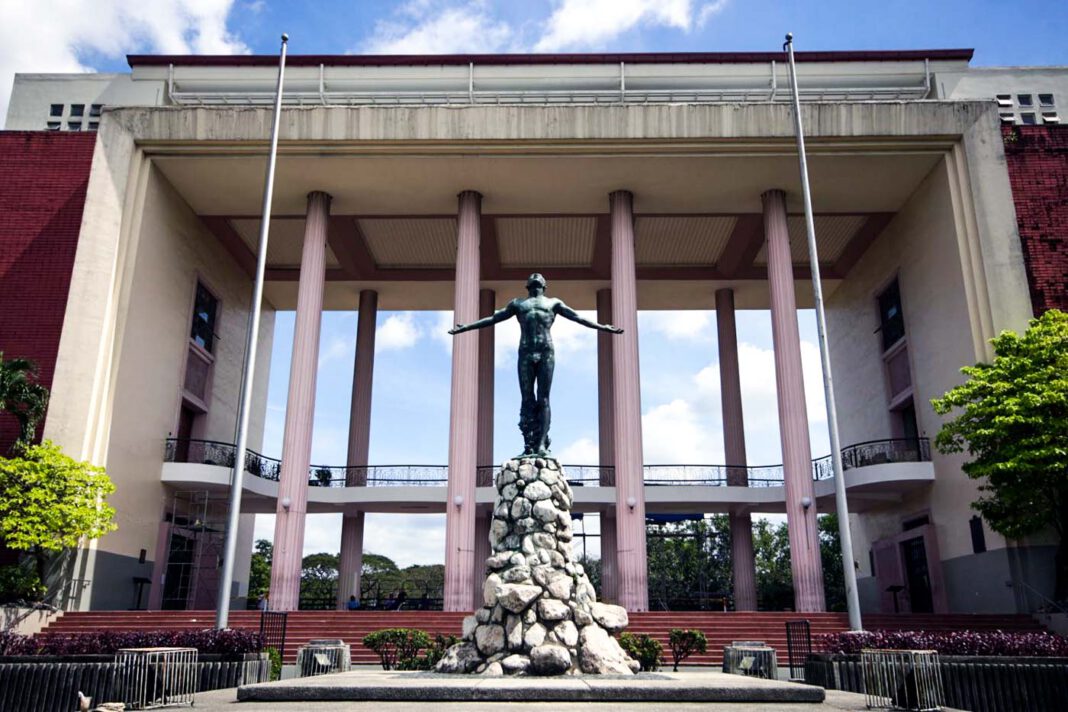Editorial, Philippine Daily Inquirer / January 22, 2021
Why did Defense Secretary Delfin Lorenzana suddenly and unilaterally terminate the 31-year agreement between the University of the Philippines and the Department of National Defense that bars police and military forces from entering the state university without first notifying its officials?
The accord, signed in 1989 between then UP president Jose Abueva and former defense secretary Fidel Ramos, was meant to protect students in the university from government forces. This came after a Philippine Collegian staffer, Donato Continente, was abducted by the military for his alleged role in the killing of US serviceman James Rowe. Following his release after 14 years in prison, Continente said he was severely tortured to admit to the crime.
In his letter to UP president Danilo Concepcion, Lorenzana characterized the agreement as “a hindrance in providing effective security, safety, and welfare of the students, faculty, and employees of UP.”
Claiming that UP has become “a safe haven for enemies of the state,” he cited—without presenting proof—“an ongoing clandestine recruitment inside UP campuses nationwide for membership in the Communist Party of the Philippines/New People’s Army.” Armed Forces of the Philippines spokesperson Maj. Gen. Edgard Arevalo also brought up the administration’s most convenient and overused bogey: the war on drugs. “What if there’s a shabu lab in UP?” he asked—a claim quickly laughed off by those who had occasion to use the university’s shoddy and severely underfunded laboratories as part of school requirements.
Although Lorenzana gave the assurance that the military and police have no plans to build stations or outposts inside UP, or “to suppress activist groups, academic freedom, and freedom of expression,” his words are understandably met with skepticism, given the state forces’ already spotty record of honoring the accord in previous years. In 2015, six men believed to be military agents were caught on campus; they were said to be surveilling the lumad solidarity event preparations then. In June last year, police arrested three students and five other individuals inside the UP Cebu campus who were protesting the anti-terror bill; the cops said they were violating social distancing, but then bundled them off to the precinct inside a cramped police vehicle.
UP chancellor Fidel Nemenzo described academic freedom as “the lifeblood of UP” that “has propelled (the) university into path-breaking areas of research and discoveries across various fields and disciplines.” Academic freedom, he said, has allowed UP to do what it does best: “to nurture young minds to dream and think big for our country, to be mission-driven and service-oriented. This is why we must defend, and will defend UP as a zone of free thought and free speech.”
UP’s most recent international ranking—65th among the 489 universities in Asia as evaluated by the Times Higher Education Asia University Rankings—also attests to the high quality of its achievements, pointed out Concepcion. “That performance, Mr. Secretary, is the result of its exercise of academic freedom—the freedom to think, to probe, to question, to find and propose better solutions.”
Lorenzana said he was open to meeting Concepcion to discuss the matter, but first, he demanded that the UP official explain why some UP students have allegedly ended up rebels and been killed in encounters with the military. An absurd proposition: What students of legal age do with their lives and abilities is ultimately their own business. Why should their decisions and fates outside of school be UP’s accountability? By that logic, would Lorenzana also explain and take responsibility for why the Philippine Military Academy has produced its considerable share of corrupt law-enforcement officials, plunderers, human rights violators, coup plotters, etc.?The defense chief’s decision to terminate the agreement at this time, and without warning to the other party, smacks of yet more diversion and repression: Public sentiment is simmering over the government’s inept handling of the COVID-19 pandemic and vaccine response and many other persistent issues: the rot in PhilHealth, the draconian anti-terrorism law, the revived Cha-cha attempt, the unabated killings and impunity among the police.
Against these rampant social ills, young Filipinos—UP students, particularly—have been among the fiercest, most vocal objectors. Tearing up the UP-DND accord not only throws up a smokescreen for the administration’s misdeeds, but may now also signal open season for state forces to intensify targeting dissenting voices and critical thought in the country’s campuses. But, as netizens have wondered: Why is Lorenzana looking for communists inside UP, when they’re all over the West Philippine Sea and, nearer to home, are already building telecom towers inside the military’s own backyard?




